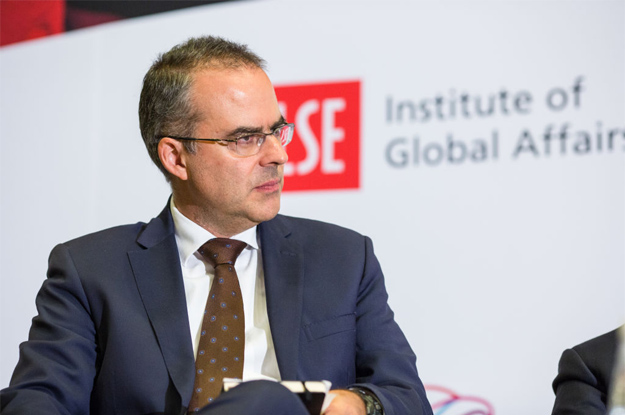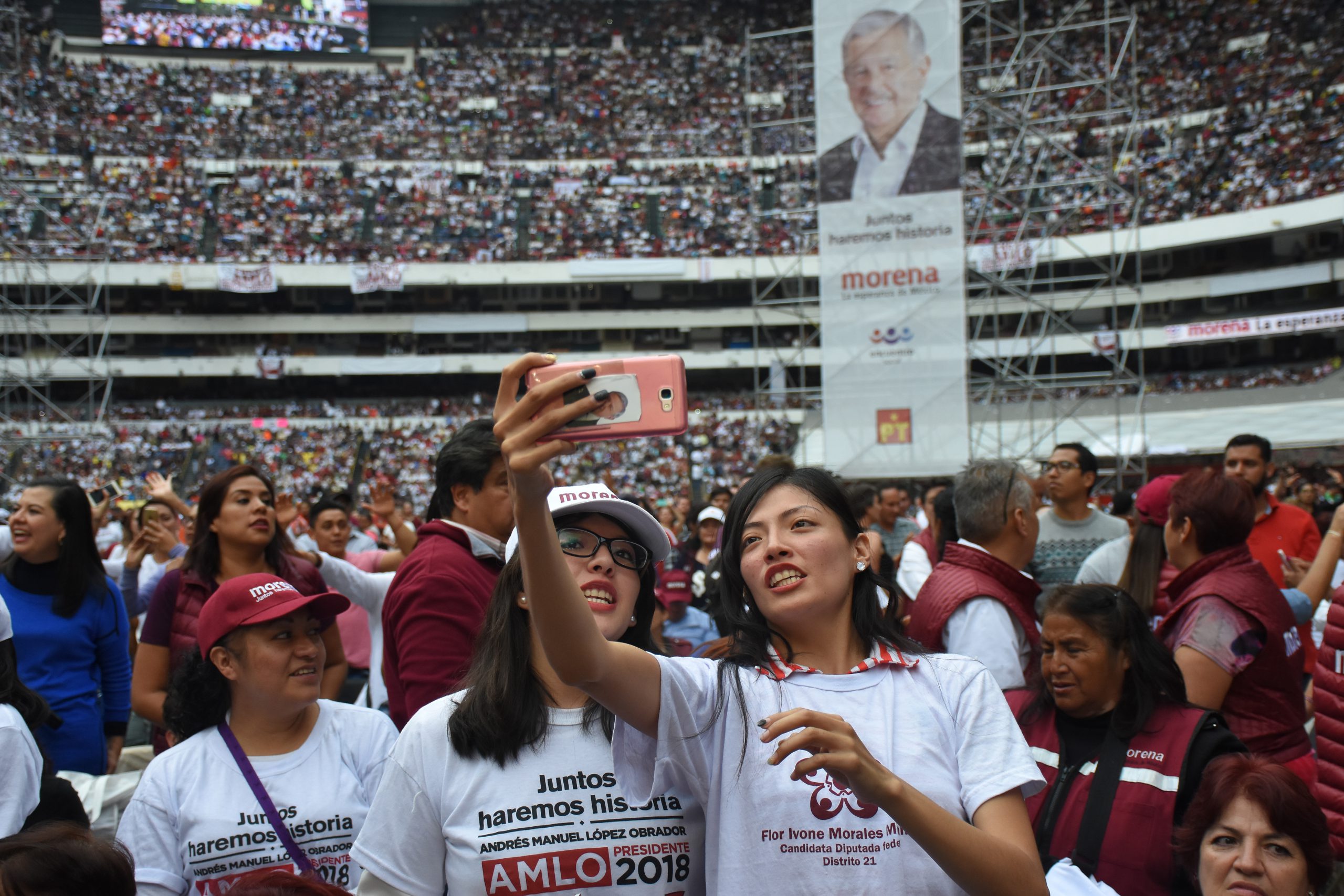Mexico is experiencing a dramatic crisis in leadership and should call an international commission to investigate reports that spyware bought by federal agencies to uncover criminal activity was instead turned on critics like lawyers, journalists and anti-corruption activists, said Juan E. Pardinas, one of Mexico’s leading transparency advocates and one of the espionage targets.
Pardinas spoke to AQ moments after Mexican President Enrique Peña Nieto minimized the claims made in the New York Times, painting his administration as the victim of unfounded allegations. Instead of conjuring a conciliatory tone in calling for an investigation to understand what happened, the president asked the attorney general to “apply the law against those who have leveled false accusations against the government.”
The president and spokespeople later sought to clarify his remarks, saying the government wouldn’t retaliate against those who made the spying charges and that his interest was in investigating their claims. But Peña Nieto’s effort to exculpate his government before any investigation has taken place did little to allay fears the administration may indeed have tried to monitor, or simply intimidate, its critics.
To Pardinas, director of the Mexican Institute for Competitiveness (IMCO) and an outspoken proponent of anti-corruption legislation, the case raises legal and ethical questions that go to the core of a state already facing significant disapproval over its human rights record. After Peña Nieto’s comments, Pardinas said he has little hope Mexican officials have the will and the moral authority to conduct this inquiry.
“There is not a domestic institution now capable of conducting this kind of investigation,” he said. “Once the moral authority of the president is lost, many other things are lost along with it.”
This interview has been translated from Spanish, and edited for clarity and length.
How would you characterize the government’s reaction to Monday’s allegations?
The president’s comments over this case are profoundly unfortunate. Before the attorney general’s office has even analyzed the case, the president has made an announcement that negates any ability to conduct a thorough legal investigation.
It would already have been difficult, given the characteristics of the Mexican political system, for an institution that depends on the president to have the autonomy needed to conduct an investigation like this. But the president’s comments just confirm it, by saying that it wasn’t the government that did the spying. Honestly, it seems to me a response more befitting a figure like (Russian President) Vladimir Putin than the president of a young democracy.
How do you think the investigation should proceed?
I think we need an international commission, because the domestic organs of the state that would be in charge of such an investigation are subordinate to the presidency. In Mexico, we don’t have a concept of obstruction of justice like in the United States. Here, justice has been obstructed by officials of the executive branch frequently and systematically – not starting with the Peña Nieto government, but going back several administrations.
Do you think this will all lead to a satisfactory conclusion for you personally?
I feel less vulnerable with the visibility that the case has received. But I am deeply skeptical over what the domestic investigations might accomplish. I’ll give them the benefit of the doubt, but there isn’t any evidence that allows me to hope.
Has the opposition response to Monday’s allegations been what you expected?
Well there was debate in Congress, which I believe the PRI and Green Party shut down, to call on the secretary of the interior to explain the contracts related to the spying programs. I would like to see more movement there.
Do organizations such as IMCO that have pushed for legislation on issues like corruption and transparency generally have support in that effort from the government?
There is a relationship and dialogue there, including with people in the current government. There are people in the administration who don’t agree with the way things are happening. There are people in opposition parties as well – perhaps not enough of them that can affect the direction of government, but there is a certain degree of counterweight and questioning. In some instances we do behave like a democracy. The spying issue is troubling, of course, but the seeds of the institutions that are needed for democracy to function are being planted.
This episode comes as we’re learning that May was the most violent month for Mexico in 20 years, on the heels of numerous high-profile corruption cases and amid an escalation of violence against journalists. What are Mexicans expecting from their government right now?
Once the moral authority of the president is lost, many other things are lost along with it. And it’s clear that this government doesn’t even intend to put forth the effort to recover. I don’t see any signs that they are interested in correcting course.
Looking just at the levels of violence, you can see a lack of seriousness in the government’s response. Mexico is confronting a very difficult final stretch of Peña’s administration, and a very dramatic crisis of leadership.
—
Russell is a senior editor for AQ









